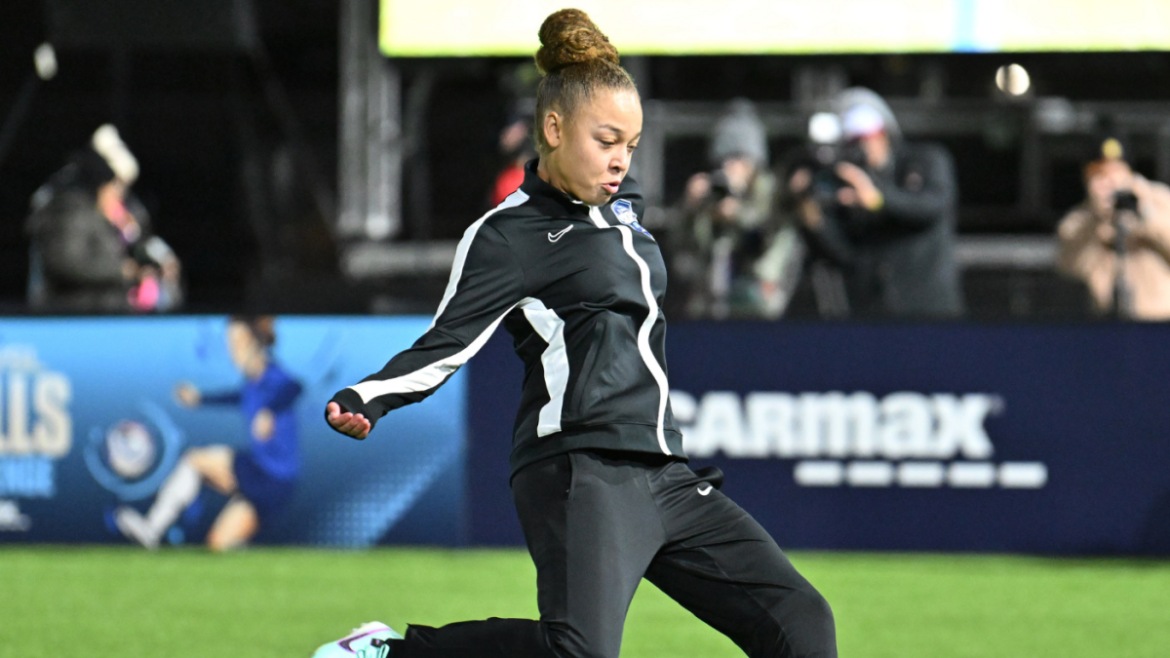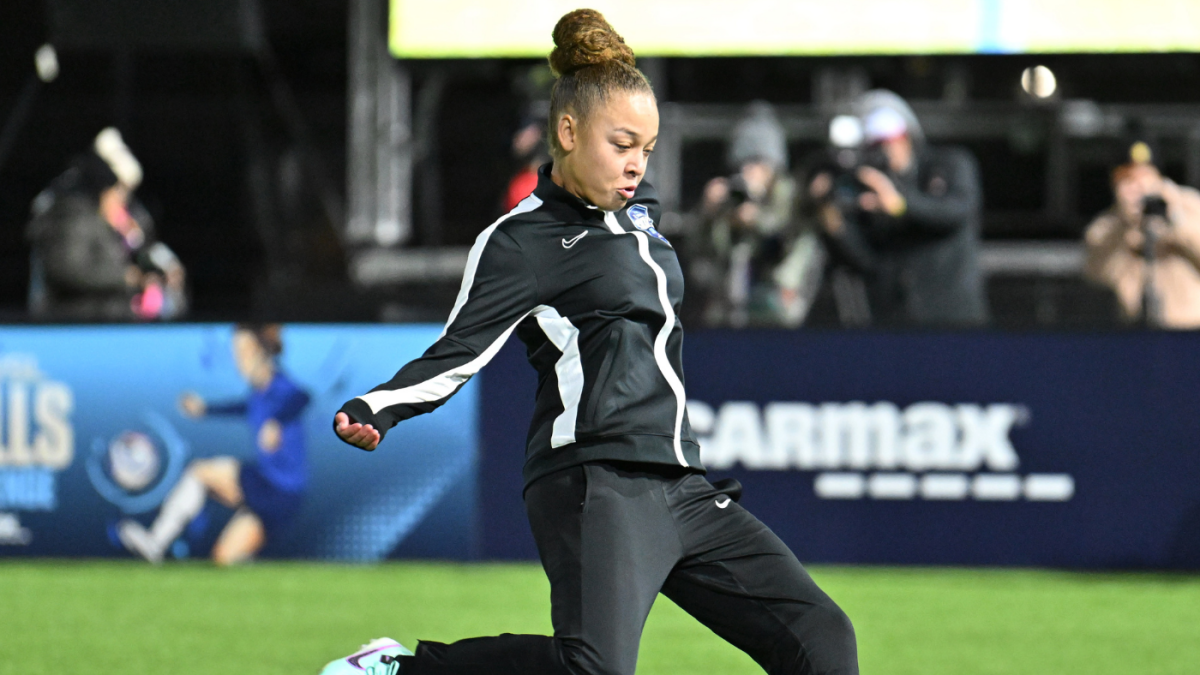The recent medical emergency involving Angel City FC defender Savy King during a National Women’s Soccer League (NWSL) match has triggered a significant debate about player safety, game protocols, and league accountability. The incident—King’s collapse on the field followed by nearly a 10-minute medical delay—has exposed critical flaws in how the league manages medical crises during matches and heightened calls for urgent procedural reforms.
The Incident: A Stark Moment of Vulnerability
During a match between Angel City FC and the Utah Royals, Savy King, a promising 20-year-old defender, suddenly collapsed on the field. The game was paused for about 10 minutes as emergency medical attention was administered on-site. Although King underwent successful heart surgery shortly afterward, the handling of the incident on the field quickly became the focus of intense scrutiny.
The NWSL Players Association (NWSLPA) and many observers criticized the decision to continue the match while King received life-saving care. The delay and continuation of play ignited fears that the league prioritized game continuity over immediate player safety and well-being.
NWSLPA’s Response: Demanding a “Bright-Line Rule”
In the wake of King’s collapse, the NWSLPA issued strong statements emphasizing humanity, sound judgment, and the necessity of restraint in such moments. The Players Association unequivocally stated that any medical emergency requiring life-saving intervention should compel an immediate halt and suspension of the match.
Meghann Burke, the Executive Director of NWSLPA, articulated this point with clarity: play must stop to respect the gravity of medical emergencies and prioritize player health above competition. This stance reflects a broader movement within the sport advocating that athlete welfare transcends sporting schedules.
The union’s demands include establishing a “bright-line rule” — a clear, unambiguous mandate obligating the immediate cessation of play for serious medical incidents. Such a policy would remove ambiguity or discretionary delay and give direct, unequivocal authority to medical teams and match officials to suspend or postpone games for player safety.
The League’s Reaction and Policy Review
The NWSL has acknowledged these concerns and announced that it is reviewing its medical emergency protocols in light of the incident. The league’s response indicates a commitment to reconsider the rules governing how and when matches are paused or stopped during serious player health events.
While no immediate policy overhaul has been finalized, the league and the NWSLPA appear to be cooperating to find solutions that balance the demands of competition with the imperative of player safety. This collaboration is crucial given the high-profile investigations and systemic issues the league has faced, including prior revelations of misconduct and abuse within NWSL environments.
Broader Context: Player Safety and League Accountability
The incident involving Savy King is not isolated but part of ongoing concerns about player safety and treatment in professional women’s soccer. Previously, joint investigations by the NWSL and the Players Association uncovered widespread systemic failures, including harassment and physical safety oversights.
This backdrop adds weight to the demand for reform. The NWSLPA’s statements reflect a desire for a cultural shift—one where player health, respect, and dignity are central. Defenders like Meghann Burke and players such as Kealia Watt have been vocal advocates for overhauling safety protocols and ensuring that elite athletes compete in environments that are not only competitive but also protective and humane.
The Complexity of Scheduling and Player Safety
Dutch forward and NWSL star Vivianne Miedema echoed these safety concerns by calling for schedule adjustments to reduce physical stress on players. The debate touches on a critical tension: the league’s ambition to grow and maintain entertainment value versus the biological limits and health risks faced by athletes.
Rethinking match schedules, recovery time, and medical response protocols is imperative to building a sustainable league infrastructure. The goal is to prevent incidents like King’s collapse through better prevention while also ensuring when emergencies do arise, the response is swift, compassionate, and above all, player-centric.
The Road Ahead: Transforming Protocols and Culture
The NWSLPA’s insistence on immediate changes to medical protocols post-Savy King incident signals a crucial moment for the league. It is an opportunity to enshrine player safety into clear, enforceable rules that leave no room for misjudgment.
Several key measures likely under consideration include:
– Mandating immediate suspension of games upon any incident requiring emergency medical intervention.
– Empowering medical personnel with autonomous authority to pause or end matches without league interference.
– Increasing transparency around medical procedures and protocols to reassure players and fans.
– Incorporating player voices formally into protocol development, ensuring that policies reflect on-the-ground realities.
– Reassessing game scheduling and player workload to minimize injury risks and health incidents.
The emerging collaborative tone between NWSL and NWSLPA provides hope for sustained, meaningful reform. Success will depend on swift implementation, clear communication, and continuous re-evaluation as player safety needs evolve.
Conclusion: Prioritizing Humanity Over the Game
Savy King’s collapse stands as a sobering reminder that sports are ultimately played by human beings whose health and safety must take precedence over the scoreboard. The controversy surrounding the handling of this medical emergency has propelled the NWSL into a critical juncture.
The demands of the NWSLPA for a “bright-line rule” and comprehensive protocol revision articulate a fundamental shift: matches must be stopped immediately when lives are at risk. The league’s response and ongoing review offer a chance to build a culture rooted in respect, care, and humanity.
The future of the NWSL depends not only on exciting competition and growth but on its commitment to safeguarding those who bring the game to life. By embracing this ethos, the league can become a true leader in athlete welfare, ensuring moments like King’s collapse are met with decisive action, not controversy.





